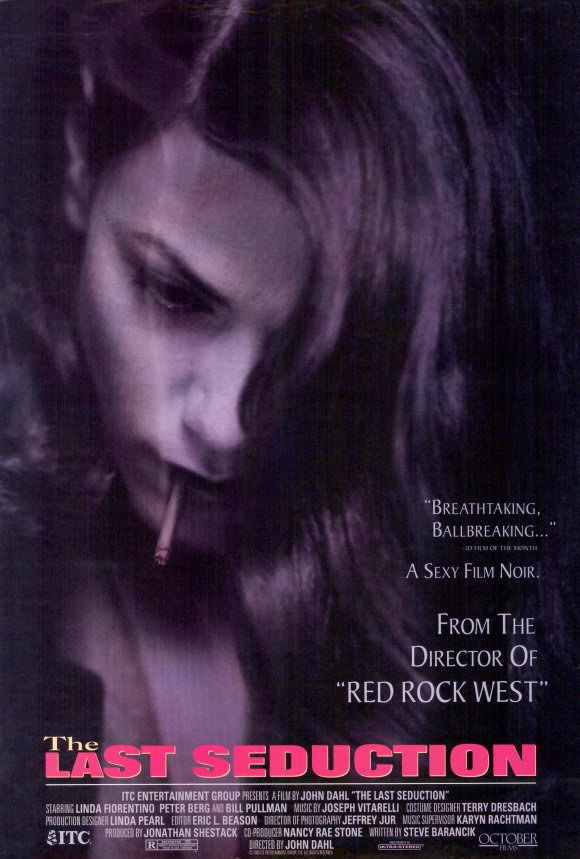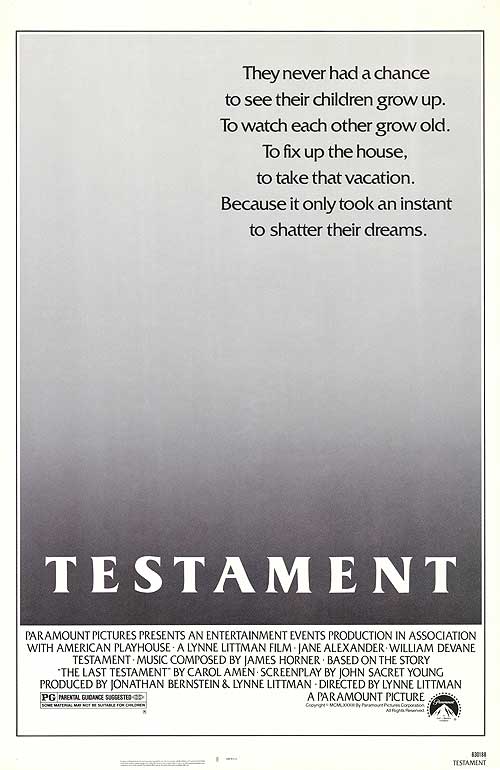In 2020, what is a "theatrical film"?
 Monday, December 14, 2020 at 10:40AM
Monday, December 14, 2020 at 10:40AM
by Juan Carlos

 2020 is the year that altered the face of cinema as we know it. After cinemas closed all over the world, films were either delayed or released in modified platforms like virtual cinemas and VOD. Indoor gathering restrictions also led to a resurgence of drive-in theaters. Meanwhile, streaming became an even more vital way for films to reach audiences. Platforms like Netflix, Amazon, and Hulu all have Oscar contenders this season.
2020 is the year that altered the face of cinema as we know it. After cinemas closed all over the world, films were either delayed or released in modified platforms like virtual cinemas and VOD. Indoor gathering restrictions also led to a resurgence of drive-in theaters. Meanwhile, streaming became an even more vital way for films to reach audiences. Platforms like Netflix, Amazon, and Hulu all have Oscar contenders this season.
This shift in movie-watching was further validated by the Academy’s decision earlier this year to allow films released via streaming and VOD to be eligible for the Academy Awards, provided that they were previously intended for theatrical release and that they will be available in the Academy Screening Room. This amendment to the eligibility rules is major, especially given the Academy’s previous adherence to the traditional definition of what a “theatrical film” is. Pre-COVID eligibility rules state that...
“[A] film be shown in a commercial motion picture theater in Los Angeles County for a theatrical qualifying run of at least seven consecutive days, during which period screenings must occur at least three times daily.”
That is the barest minimum that makes a film eligible for the Academy Awards in a given year, thus making them “cinema”. This rule gave birth to the ‘qualifying run’ strategy: films would meet this requirement, mostly in December, and then wait for the next year, presumably after nominations or even the ceremony, to reopen in theaters.
 A key film in the formulation of this awards strategy was The Deer Hunter: it had a qualifying run on December 8th, 1978. It only went to wide release on February 23, 1979, three days after Oscar nominations were announced. That soon became a normal strategy.
A key film in the formulation of this awards strategy was The Deer Hunter: it had a qualifying run on December 8th, 1978. It only went to wide release on February 23, 1979, three days after Oscar nominations were announced. That soon became a normal strategy.
The bare minimum release rule has also been exploited by Netflix for its awards contenders. Because the Academy only disqualifies films that were released in non-theatrical platforms before a theatrical release, Netflix gets a pass for releasing their films on streaming and in qualifying run on the same day, something that the Academy rules explicitly stipulate is still in compliance with the eligibility rules, making them qualified to be considered as “theatrical films”.
This has been used by streaming services to separate their Oscar contenders from their Emmy contenders. Here are a few examples:
NETFLIX
Mudbound (2017): Premiered in Sundance. Released on Netflix and qualifying run on the same day. Qualifies for the Oscars and gets four nominations.
American Son (2019): Premiered in Toronto. Released on Netflix but no qualifying run. Qualifies for the Emmys and gets a nomination.
AMAZON PRIME
The Aeronauts (2019): Premiered in Telluride. Released on Prime and qualifying run in December. Qualifies for the Oscars.
Troop Zero (2019): Premiered in Sundance. Release on Prime but no qualifying run. Qualifies for the Emmys.
The current blurred line between theatrical films and TV movies is not a new problem.


These same eligibility rules also disqualified buzzy contenders throughout the years. One famous example was the neo noir The Last Seduction (1994). Originally intended to be a theatrical film, it was bought by HBO and premiered on television four months before its theatrical release. That resulted in its disqualification for the Oscars. Best Live Action Short Film nominee Tuba Atlantic (2011) had its Oscar nomination rescinded when the Academy found out that it premiered on television before its qualifying run.
Conversely, productions that were initially intended to be “TV movies” but had a qualifying run became eligible to the Oscars. As a New York Times article articulated in 1995, films like Testament (1983), El Norte (1984), and Stand and Deliver (1988) were made for television release but were given their theatrical releases. All three earned Oscar nominations.
In between, there were films that almost did not qualify for the Oscars because of their release plans. Monster (2003) was hours away from signing a straight-to-video deal before it was picked up for theatrical release. Slumdog Millionaire (2008) almost went the same route. Both went on to win major Oscars, Best Actress and Best Picture respectively.
And then there are films that are a weird mixture of the two, dependent only on geography. The biopics Behind the Candelabra (2013) and Grace of Monaco (2014) both premiered at the Cannes film festival and were released in cinemas outside of the United States. Candelabra was nominated for five BAFTAs. However, both were considered television productions in the US and received Emmy nominations.
The delineation between a “theatrical film” and a “TV movie” is practically impossible to see now due to the widespread closure of cinemas. Even with the Academy's modified definitions for this particular awards season, several productions have challenged perceptions:

-
Bad Education premiered in Toronto last year, but was picked up by HBO and broadcasted in cable television as well as its streaming services. It was nominatd at the Emmys. However, several critics still list this as part of their best films of the year.
-
The filmed stage show Hamilton was originally intended for a theatrical release, but was instead released on Disney+. However, it will not be eligible for the Oscars but for the Emmys.
-
Steve McQueen's Small Axe anthology, consisting of five features, had its individual installments premiere in film festivals. However, they are not eligible for the Oscars but for the Emmys. They will not be campaigned as individual TV Movies but as an anthology series that will be eligible in the newly renamed Outstanding Limited or Anthology Series. Nevertheless, several critics have already included individual parts of the anthology in their best films of the year lists.
-
Let Them All Talk just arrived on HBO Max but it will qualify for the Oscars but since it was always an HBO project wasn't it always intended for TV?
-
Greyhound was originally slated to be theatrically released by Sony. However, it was then sold to Apple TV+ and was released in July. It is now campaigning for the Oscars.
-
Uncle Frank and Sylvie’s Love were both picked up by Amazon after their Sundance premieres in January and were both touted as possible Oscar contenders. However, now both films will be considered TV movies and eligible only at th Emmys.
Given these examples (and more) it's now fairly clear that the only thing that separates a "theatrical film" from a "TV movie" is awards strategy. The Film Experience will be following how eligibility is determined by the various Academies. But for me personally I admit that I cannot see a clear way to separate a theatrical film and a television film, in our COVID-stricken world. Frankly, we might just have to live with that awards-strategy only difference for now.



Reader Comments (20)
Is there a definite decision on The Boys in the Band - Oscars or Emmys?
Definitely the lines have always been blurry and it's practically a faint smudge this year. Ultimate I think it depends also on what a critic/pundit wants to speak on ultimately. Is it just to predict or preempt the Oscars? If so then sticking to whatever qualifies for that award is essential. But if they just want to talk about the films released this year that they love... why NOT include Bad Education or Hamilton or Uncle Frank or [insert other movie here]?
Of the past 10 yrs the one omission from the Oscars that bothers me is Behind the Candelabra.
They were so silly not to put it out in cinemas thus robbing Douglas of a 2nd win which he would have deserved more than the first,I mean Liberace was Hollywood and Showbiz so to reduce him to a TV movie special was wrong and lacking insight.
The Boys in the Band is good enough for Emmys but not good enough for Oscars.
The Prom should only compete for Razzies.
"Behind the Candelabra" should have had a limited theatrical release
Definitely interesting to think about. I've been thinking mostly in terms of ranking films for the best of the year. In a normal year, I'd see most releases in theaters and feel like I could have an accurate opinion. Now? It's really hard to say if 'First Cow' is good or not if I'm watching it at home. I see why so many critics picked it as one of the best of the year -- it's one of the last films they saw in theaters. For me, it won't be on my list because my only opportunity to see it was at home.
'Bad Education' is a great film and one of the most memorable I watched this year. It does play extremely well at home.
These distinctions are proving to be pointless in a Post COVID world.
Okay, this year is hopefully a one off and they will revert back to their usual "one week qualifying run" requirement, no? But, and I've said this before, why doesn't Netflix and Amazon et al just release their movies in a theater for a week? Los Angeles County is vast and they could just buy an unused commercial space in Lancaster and project the movie on a wall for a week and call it a movie. I don't get the big deal. And if they want to really spend their big bucks, there are many old movie theaters in downtown L.A. just moldering away. Why not pick up one of those?
And here is my other question, what is the "bare minimum" for Emmy qualification in a given year? Does the one week theatrical release disqualify it for Emmy consideration? Since Emmys are a dime a dozen, wouldn't most "talent" want to shoot for that Oscar consideration if there is any possibility of it?
@James: The Boys in the Band is going for the Oscars.
@Dave in Hollywood:
As far as I know, Netflix and Amazon do screen some of their films in a theater in LA County, hence past films getting nominated (Mudbound, Roma, Cold War, etc.). The ones that they don't screen in a physical theater, they usually have the option to submit it to the Emmys. That just got harder this year since it's no longer a prerequisite to screen commercially as long as "intent" of theatrical release is proven.
And as for Emmys, they have already made a rule that a film that is submitted for Oscar consideration could no longer compete for Emmys.
Thanks Juan Carlos. So the studios have to decide which way to play it since a theatrical mini-run knocks it out of Emmy consideration, but without it (in normal years) you can't go Oscar. That must be a tricky maneuver for the studios. I remember when Linda Fiorentino won all those precursor film awards from critics groups but couldn't compete for Best Actress so the Oscar went to Jessica Lange without competition really.
Omg THE LAST SEDUCTION totally deserves a revisit!!! Amazing performance by Linda Fiorentino!
Behind The Candelabra, Grey Gardens and Bessie are three “TV Movies” that I always felt were “Theatrical Releases” at heart... and all 3 would have contended for a Leading (Douglas, Barrymore, Latifah) and Supporting (Damon, Lange, Mo’nique) win at the Oscars with half a campaign, category fraud notwithstanding.
To add (heading back 45 years), Cicely Tyson won the Emmy but was also BAFTA Best Actress nominated for a film that was a theatrical release in the UK...
If Boys in the Band is Oscar-eligible, I hope they don't overlook Jim Parsons. He MADE that movie (which btw I loved).
kermit_the_frog -- Behind the Candelabra was released in Portuguese cinemas after it premiered at Cannes. Because of that, I always felt very conflicted about categorizing it as a TV movie and started really questioning, back then, whether matters of distribution should categorize and define the way we look at a certain work of art. At the Portuguese publication I also write for, we're considering changing our categories of articles. We presently divide them between Cinema and TV, but we may be heading to a division between Films and Series.
I love the new category for the Emmys ... Black Mirror, Small Axe, Modern Love etc., will all be under this new category and it makes sense.
If a show has more than one episode in a season, like Black Mirror and Small Axe, then it's made for TV and put under Limited Series/Anthology.
TV Movie on the other hand needs to be removed. There are so few TV movies these days and all of them should only be eligible for the Oscars, like Bad Education etc.
so if 'monster' had gone the video route, does diane keaton win her second or does naomi watts win for the still fresh 'mulholland' snub? and who moves up from sixth place?
“This cold night will turn us all to fools and madmen.” (King Lear)
Rod -- i agree with this actually. Since there are so few tv movies, why aren't "movies" just automatically movies. It would make things so much simpler.
I'm confused about what people who are furious about streaming services want, in 2020.
Movie theaters exempted from social distancing requirements?
No new movies until after the pandemic?
It seems like they're the same people who threw a fit about the Oscars getting delayed, and the film year extended. So they want...a complete accounting of the 2020 film year (theatrical releases only!!!) that ends December 31?
"KEEP RELEASING MOVIES" and "DON'T RELEASE THEM ON STREAMING SERVICES" seems like a really untenable set of demands in this situation. People seem mad for the sake of getting mad.